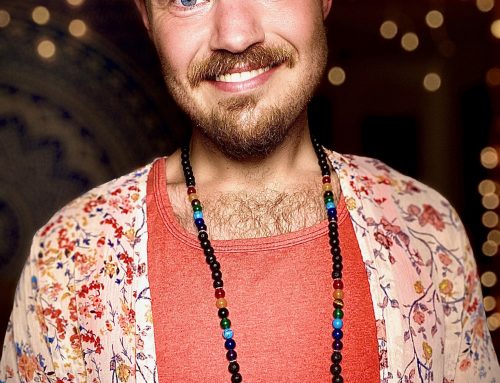
Thug’s cleanched fists with scars with fake Love and Hate tattoos on the fingers. Toned image with added grain for the grunge menacing style designs with big copy space area.
A major obstacle in dealing with any social problem is getting people to leave behind preconceived prejudices so that the topic at hand can be addressed in a logical and objective manner. It has been a stumbling block towards progress in society since the beginnings of civilization and when people are unable to relate to the “other”, or someone that lays outside of their daily understanding of life, there is a breakdown in communication and that society finds it very difficult to solve communal problems.
This is currently one thing that plagues the alcoholic and addict, and in order for us as a country to start to actually deal with the issue of drug addiction and alcoholism, we must first break through the stereotypes that many associate with addiction, and reframe the societal image of the addict so that people can no longer easily turn a blind eye to this mounting problem. Along with the stereotypes, it is high time that people begin to acknowledge that addiction is a disease, not a choice or moral failing.
For many people, the addict or alcoholic is a strange aberration. A person whose daily activities lay so far outside their understanding that making sense of their actions is almost impossible. Many people among the general population believe addicts and alcoholics to be dangerous people who they should be frightened of. They believe them to live under a bridge somewhere, or to be scrounging for change at the inner section, but the reality is that many addicts and alcoholics do not fit this stereotypical mold; they walk among us, at work, in school, and in our families.
Addicts and alcoholics do not particularly help with promoting a positive public image and that is because addiction is ugly. It is an ugly thing to witness someone destroying themselves on a daily basis. Watching them steal and lie in order to get a fix, putting one foot in front of the other as they march onward to their own destruction, but that being said, just because something is ugly to look at, does not mean that we can shun it and turn away from it. Or that we can neatly categorize it in a stereotypical fashion so that we can avoid having to dive into the complexities of the issue at hand.
Stereotyping in a sense is a way of taking bits of truth and then generalizing them so that a person can attempt to understand a group that is different than them. This is sometimes done innocently enough, which I believe to be the case with addiction, and it is sometimes done in order to perpetuate a hegemonic view that keeps people in bondage. Regardless of the outcome, in order for something to change the stereotype of the group must be broken, so that a connection can be made and the group can be viewed as people, rather than an amorphous mass of nameless faces.
Addicts and alcoholics are more than just the sum of their actions. They are more than their disease. They are people. They are people who struggle with something that they do not fully comprehend, something that forces them to act in ways that are counterintuitive to their survival and causes them to hurt the people that they love most. Living in addiction is hell and it is made worse by the constant need to hide away for fear of societal repercussion, and I don’t just mean legally. I mean the fact that to be exposed as an alcoholic or addict is tantamount to social suicide because of how negatively we perceive these things to be.
This does nothing but create a tremendous amount of guilt and shame in the addict and alcoholic, on top of their own personal shame, and it can sometimes lead people to dive further into their addiction and not seek help. I personally believe that if we were to break down some of the stereotypes that are associated with being an addict or alcoholic people would be more apt to ask for help and in turn, we could possibly help to save lives.
Breaking down stereotypes would also allow for governmental policies to be put in place that make sense. It would remove some of the emotionality and prejudices involved that usually go into making drug policy in this country. For instance, we have spent the past 30 years chasing down a “Just Say No” agenda which was essentially based off of Nancy Reagan’s own personal beliefs as to what alcoholism and addiction is. Her stereotyping and understanding led her to erroneously conclude that addicts were bad people and that if you were a good person you could just say no. There was no room for talk about the social, biological, and psychological aspects of addiction, just a simple No sufficiently summed up the problem.
We chased this agenda for 30 years and arrived at a place where we finally realized that it was not working and that things were actually getting worse. So the government acted again and created the CARA Bill, which honestly will probably do very little to actually help the alcoholic and addict. This is because the same stereotypes exist today that existed 30 years ago and so this new national agenda is still rooted in a misunderstanding of what the drug addict and alcoholic needs. Yes, it does reduce some of the harsh sentencing, but it barely even allocated any funding for education or rehabilitation, so it just essentially more of the same thing.
In order to truly create policies and community outreach programs that can help to combat addiction and alcoholism in this country, we need to understand that alcoholism and addiction is everyone’s problem. It is everyone’s problem because addicts and alcoholics are no different than people who do not suffer from addiction. They are not their stereotype but they are people who just happen to have a disease. Understanding this, may help us to come up with logical and realistic ways of going about dealing with addiction in this country and in doing so, may allow people to recover that wouldn’t have otherwise.
 Rose Lockinger is a passionate member of the recovery community. A rebel who found her cause, she uses blogging and social media to raise the awareness about the disease of addiction. She has visited all over North and South America. Single mom to two beautiful children she has learned parenting is without a doubt the most rewarding job in the world. Currently the Outreach Director at Stodzy Internet Marketing.
Rose Lockinger is a passionate member of the recovery community. A rebel who found her cause, she uses blogging and social media to raise the awareness about the disease of addiction. She has visited all over North and South America. Single mom to two beautiful children she has learned parenting is without a doubt the most rewarding job in the world. Currently the Outreach Director at Stodzy Internet Marketing.






Leave A Comment